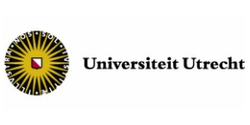Postdoc Researcher: Mental Models of Nature-Based Solutions
Updated: 20 Dec 2024
Utrecht University invites applications for a highly motivated postdoctoral researcher to join our interdisciplinary project, ARE BEST NbS project, focused on advancing the understanding of Nature-Based Solutions (NbS) through a mental model approach.
Your job
You will play a pivotal role in mapping stakeholders’ perceptions of the benefits of NbS for biodiversity, human well-being, and societal transformation toward biodiversity recovery. You will work with an international consortium of researchers and stakeholders using a standardized, cutting-edge online software tool, M-Tool (van den Broek, 2021). This role offers an opportunity to contribute to pioneering research that will inform policy and practice for NbS implementation across Europe.
The key responsibilities include:
- leading the design and implementation of the mental model mapping process for diverse stakeholder groups, including local businesses, policymakers, and communities in case study regions (Portugal, Denmark, Hungary);
- using M-Tool to aggregate and systematically compare mental models across stakeholder groups and NbS academic experts;
- conducting interviews with stakeholders to populate the M-Tool and ensure the robustness of the standardised calibration process;
- analysing mental model data to identify discrepancies, inaccuracies, and differences in perceptions across stakeholders;
- collaborating with international research teams in the project to integrate findings into broader analyses of NbS preferences, benefits, and policy support;
- presenting results through reports, scientific publications, and presentations at international conferences;
- co-creating actionable recommendations for fostering stakeholder engagement in NbS development and implementation;
- 10% of the position consists of teaching relevant courses.
Requirements:
You bring the following qualifications:
- a PhD in environmental psychology, ecology, conservation science, or a related field;
- strong quantitative analysis skills, ideally with proficiency in R;
- excellent written and verbal communication skills in English;
- a proven track record of publishing in peer-reviewed journals.
It is an asset if you also bring multiple of the following qualifications:
- familiarity with Nature-Based Solutions, biodiversity recovery strategies, or human-nature interactions;
- experience with mental models, stakeholder engagement, or participatory research methods;
- qualitative data analysis skills;
- experience with cross-cultural or multi-country research collaborations;
- the ability to speak one or more European languages relevant to the case study regions;
- experience in teaching.
Salary Benefits:
We offer:
- a position for three years;
- a working week of 36 hours and a gross monthly salary between €3,378 and €5,331 in the case of full-time employment (salary scale 10 under the Collective Labour Agreement for Dutch Universities (CAO NU));
- 8% holiday pay and 8.3% year-end bonus;
- a pension scheme, partially paid parental leave and flexible terms of employment based on the CAO NU.
In addition to the terms of employment laid down in the CAO NU, Utrecht University has a number of schemes and facilities of its own for employees. This includes schemes facilitating professional development, leave schemes and schemes for sports and cultural activities, as well as discounts on software and other IT products. We also offer access to additional employee benefits through our Terms of Employment Options Model. In this way, we encourage our employees to continue to invest in their growth. For more information, please visit Working at Utrecht University.
32 - 40 hours per week
Princetonlaan 8a

